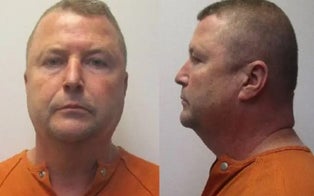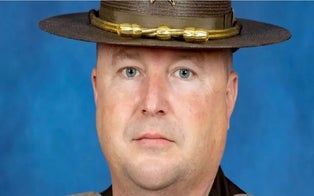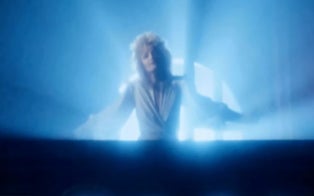Lance Armstrong's confession to doping made it official, but some are questioning his sincerity. INSIDE EDITION has the details.
In Part Two of Oprah Winfrey's interview with Lance Armstrong, the disgraced legend talks about watching his life fall apart.
Armstrong said, "Nike called. They're out. That was a $75 million day."
And confessing to his son that he was a doper:
"Your 13-year-old son, Luke. You heard that he was defending you," said Winfrey.
It's expected to be as explosive as Part One when Armstrong admitted for the first time that he took performing enhancing drugs.
Winfrey asked, "Yes or no—In all seven of your Tour de France victories, did you ever take banned substances or blood dope?"
"Yes," replied Armstrong.
But if he believed his Oprah confession would win him forgiveness, he was wrong. The reaction to the blockbuster interview is almost universally negative.
On Good Morning America, George Stephanopoulos told USA Today sports columnist Christine Brennan, "Over the course of 90 minutes, no real apology."
Brennan said, "No, not at all. And if he could look worse, if that's possible George, Lance Armstrong did look worse last night."
Armstrong showed little emotion and less remorse as he admitted his life was one big lie.
Winfrey asked, "Did you feel bad about it?"
"No," said Armstrong.
"Did you feel in any way that you were cheating?"
"No," he replied.
His former masseuse, Emma O'Reilly didn't pull any punches when she spoke about the interview.
"You know what? The little runt," said O'Reilly.
And Betsy Andreu, wife of a former teammate who blew the whistle on Armstrong's drug use in 2006, told GMA he may have made his situation even worse.
Elizabeth Vargas asked Andreu, "Yes or no, did he make it worse?"
"Yes," said Andreu.
Armstrong admitted that he bullied anyone who dared to expose the truth, saying, "Yeah, I was a bully."
He revealed he called Betsy Andreu and apologized for branding her a crazy liar.
"I told her, 'I called you a (blank). I called you crazy. I called you all these things, but I never called you fat,' " said Armstrong.
That attempt at humor fell embarrassingly flat.
The head of the world anti-doping agency fired back at Armstrong Friday, saying he is still lying and gave "weasel answers."
Body language expert Tonya Reiman analyzed his performance for INSIDE EDITION and says his answers were carefully rehearsed and at times, deceptive.
"His coaching went a little too far, because he hesitated, thought about what he needed to remember to say and said it," said Reiman.
Reiman told INSIDE EDITION his body language shows he was protecting himself.
"As she starts to speak and he starts to become more uncomfortable, you see a very slight, subtle shift as his legs start to close. When we see that, typically that's because men will close up—women too, but more so men—to cover up their vulnerable areas. That's incredibly significant because it shows us his mindset at that moment."
Armstrong claims the interview is just the start of a process of earning people's foregiveness.
"I will spend the rest of my life trying to earn back trust and apologize to people, for the rest of my life," said Armstrong.






